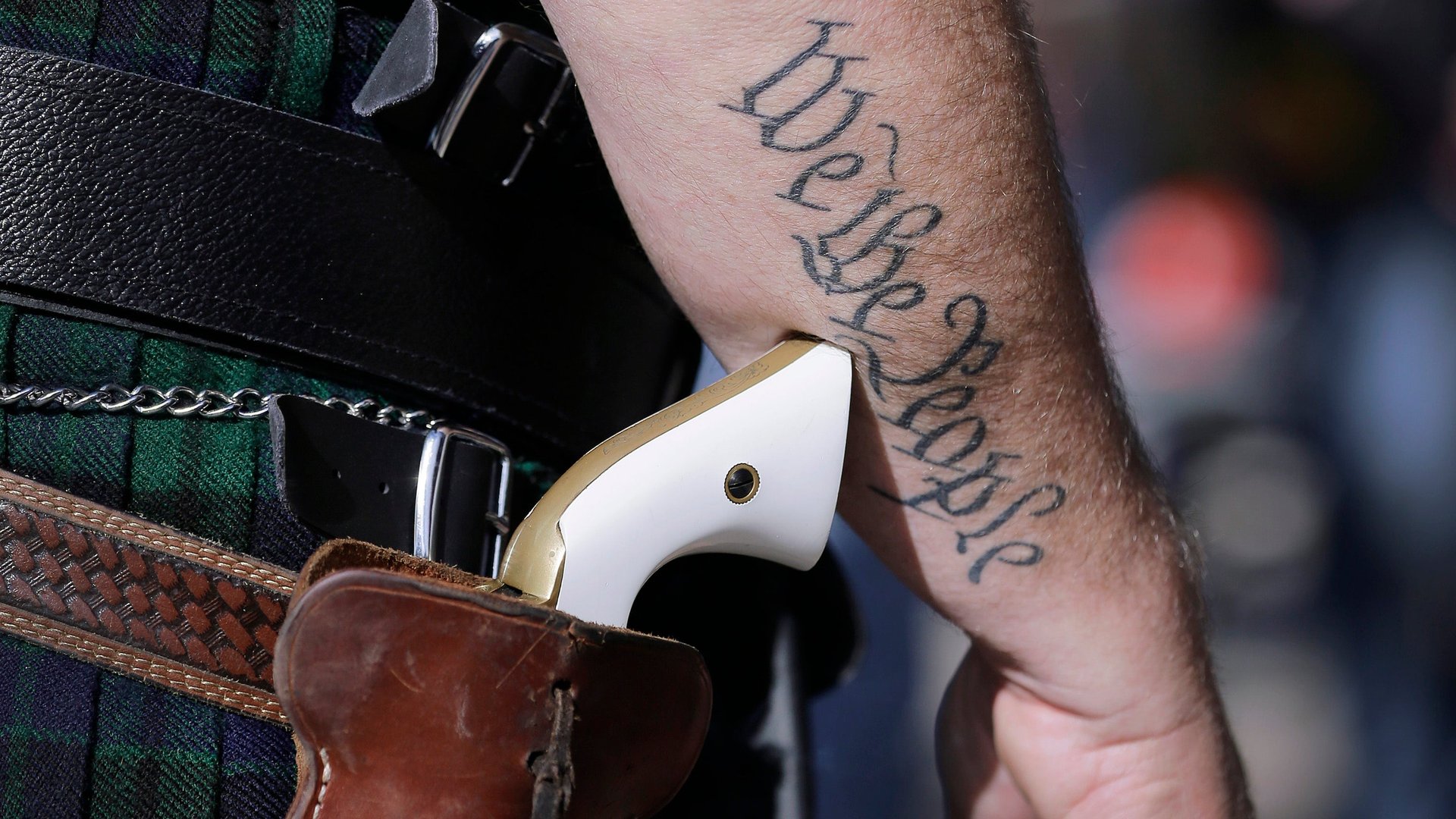Now it’s time for Congress to recognize gun control as a public-health crisis, too
Gun violence is a public health crisis. Yet despite the disturbing frequency of police killings, mass shootings, accidental deaths and murders, the United States government refuses to provide adequate funding for unbiased research.


Gun violence is a public health crisis. Yet despite the disturbing frequency of police killings, mass shootings, accidental deaths and murders, the United States government refuses to provide adequate funding for unbiased research.
Shooting victims aren’t the only people impacted by gun violence. Exposure to violence also has enduring health effects on victims’ friends, families, and communities. In fact, it is fair to suggest that we may all face potentially damaging psychological, emotional, and physical consequences as a result of the gun violence epidemic in the US.
But since the mid-1990s, the Centers for Disease Control (CDC) has faced roadblocks to research on gun violence. In December, Congress refused to lift what amounts to a ban on the government-funded health research agency’s gun research, effectively blocking the possibility of large-scale studies of guns’ effects on public health. The National Institute of Health and the Department of Justice have commissioned just $5 million in federal funding for research grants related to gun violence since 2013, compared to $830 million in federal funding allocated for research into vehicle safety.
Many members of the medical community met the news of the continued ban on CDC gun violence research with dismay.
“The medical and public health communities believe gun violence is a serious public health epidemic,” Dr. Alice Chen, executive director of the affordable health-care movement Doctors for America, said in a public statement. “As health care providers, we are overwhelmed by the devastating injuries and 90 deaths a day from gun violence.”
While there has been far too little research conducted on the health effects of gun violence, we do have evidence that suggests real dangers. A 2014 report from the Bureau of Justice Statistics found that 74% of victims from an assault involving firearms experienced social and emotional problems in its aftermath, compared to 51% of victims of assaults that did not involve serious injuries or a weapon.
In mass shootings, victims who survive are consistently shown to experience levels of post-traumatic stress disorder (PTSD), depression, and anxiety. Children exposed to gun violence have been found to experience anger, withdrawal, PTSD, and desensitization to violence, all of which may contribute to the perpetuation of further violence. Research also shows that children and adolescents frequently report sleep disturbances, difficulty concentrating and social withdrawal after life-threatening events.
Moreover, it’s well known that most people have physical and emotional reactions to traumatic events, ranging from depression to anxiety to increased feelings of anger and isolation. Some may choose to cope or react to violence with maladaptive behaviors such as increased alcohol or drug use, further harming their health.
Finding a deceased family member or loved one at the scene of a shooting can also be associated with the onset of PTSD. Studies on the physiological effects of violence in African-American adolescents have found that their blood pressure remains elevated—a recognized risk for cardiovascular disease.
Policymakers need access to unbiased research on the health effects of gun violence in order to shape effective policies that will lower the number of shootings in the US. That said, there is already some useful research for legislators to draw from. For instance, a study across multiple states over a nine-year period found that more extensive background checks are associated with lower rates of firearm homicide, firearm suicide, and overall homicide. Such findings should inform elected officials’ responses to the Fix Gun Checks Act of 2015, which would require background checks for all firearm sales.
Gun violence in the US is costing us our lives. Some Americans die immediately as a result of gunshot wounds, while others suffer from the slow poison of needless bloodshed. In order to find a remedy, we need Congress to let scientific researchers do their jobs.